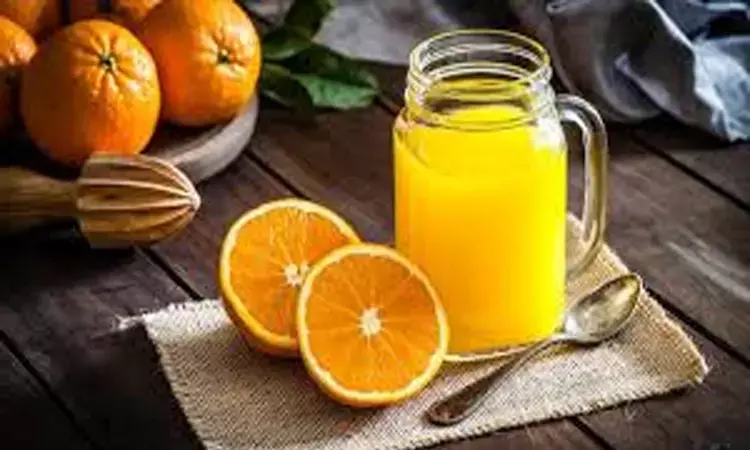- Home
- Medical news & Guidelines
- Anesthesiology
- Cardiology and CTVS
- Critical Care
- Dentistry
- Dermatology
- Diabetes and Endocrinology
- ENT
- Gastroenterology
- Medicine
- Nephrology
- Neurology
- Obstretics-Gynaecology
- Oncology
- Ophthalmology
- Orthopaedics
- Pediatrics-Neonatology
- Psychiatry
- Pulmonology
- Radiology
- Surgery
- Urology
- Laboratory Medicine
- Diet
- Nursing
- Paramedical
- Physiotherapy
- Health news
- Fact Check
- Bone Health Fact Check
- Brain Health Fact Check
- Cancer Related Fact Check
- Child Care Fact Check
- Dental and oral health fact check
- Diabetes and metabolic health fact check
- Diet and Nutrition Fact Check
- Eye and ENT Care Fact Check
- Fitness fact check
- Gut health fact check
- Heart health fact check
- Kidney health fact check
- Medical education fact check
- Men's health fact check
- Respiratory fact check
- Skin and hair care fact check
- Vaccine and Immunization fact check
- Women's health fact check
- AYUSH
- State News
- Andaman and Nicobar Islands
- Andhra Pradesh
- Arunachal Pradesh
- Assam
- Bihar
- Chandigarh
- Chattisgarh
- Dadra and Nagar Haveli
- Daman and Diu
- Delhi
- Goa
- Gujarat
- Haryana
- Himachal Pradesh
- Jammu & Kashmir
- Jharkhand
- Karnataka
- Kerala
- Ladakh
- Lakshadweep
- Madhya Pradesh
- Maharashtra
- Manipur
- Meghalaya
- Mizoram
- Nagaland
- Odisha
- Puducherry
- Punjab
- Rajasthan
- Sikkim
- Tamil Nadu
- Telangana
- Tripura
- Uttar Pradesh
- Uttrakhand
- West Bengal
- Medical Education
- Industry
Excessive intake of artificially sweetened beverages may increase risk of NAFLD

A recent study by Ying Sun and colleagues from the UK Biobank has revealed concerning associations between the consumption of certain beverages and the risk of Non-Alcoholic Fatty Liver Disease (NAFLD). The study has revealed that Excessive artificially sweetened beverages intake increased the risk of hospitalized NAFLD.
The study was published in Endocrine Practice.
The study, which included data from 136,277 participants without a history of liver disease, focused on the impact of sugar-sweetened beverages (SSB), artificially sweetened beverages (ASB), and pure fruit juice (PJ) on the development of NAFLD.
In this cross-sectional study, NAFLD was defined using the fatty liver index (FLI), with a score of ≥60 indicating the presence of the disease. For the longitudinal setting, hospitalized NAFLD was defined as admission with ICD-10 codes K76.0 and K75.8. The researchers employed logistic regression for the cross-sectional analysis and Cox proportional hazard regression for the longitudinal investigation.
The findings indicated that consumption of SSB, ASB, and PJ was all linked to the risk of NAFLD. Compared to individuals who did not consume these beverages, those who consumed 1-2 liters or more per week had significantly higher odds of developing NAFLD.
Specifically, for SSB consumption, the multivariate-adjusted odds ratios were 1.06 (1.02-1.10) for ≤1 liter/week, 1.24 (1.19-1.29) for 1-2 liters/week, and 1.42 (1.35-1.49) for >2 liters/week. ASB consumption showed even more significant associations with NAFLD risk, with multivariate-adjusted odds ratios of 1.43 (1.37-1.50) for ≤1 liter/week, 1.73 (1.65-1.82) for 1-2 liters/week, and a substantial 2.37 (2.25-2.50) for >2 liters/week.
In contrast, the consumption of PJ showed a weak association, with multivariate-adjusted odds ratios of 0.87 (0.84-0.89) for ≤1 liter/week, 0.91 (0.88-0.94) for 1-2 liters/week, and 1.07 (1.02-1.13) for >2 liters/week.
Furthermore, the study followed participants for a median of 10.2 years, during which 1,043 cases of hospitalized NAFLD were recorded. ASB consumption at the levels of 1-2 liters/week and >2 liters/week was found to be associated with a 22% and 35% increased risk of incident hospitalized NAFLD, respectively. The results highlight a concerning trend, suggesting that the excessive consumption of artificially sweetened beverages may contribute to the development of NAFLD.
Reference:
Sun, Y., Yu, B., Wang, Y., Wang, B., Tan, X., Lu, Y., Zhang, K., & Wang, N. (2023). Associations of sugar-sweetened beverages, artificially sweetened beverages, and pure fruit juice with nonalcoholic fatty liver disease: cross-sectional and longitudinal study. In Endocrine Practice. Elsevier BV. https://doi.org/10.1016/j.eprac.2023.06.002
Neuroscience Masters graduate
Jacinthlyn Sylvia, a Neuroscience Master's graduate from Chennai has worked extensively in deciphering the neurobiology of cognition and motor control in aging. She also has spread-out exposure to Neurosurgery from her Bachelor’s. She is currently involved in active Neuro-Oncology research. She is an upcoming neuroscientist with a fiery passion for writing. Her news cover at Medical Dialogues feature recent discoveries and updates from the healthcare and biomedical research fields. She can be reached at editorial@medicaldialogues.in
Dr Kamal Kant Kohli-MBBS, DTCD- a chest specialist with more than 30 years of practice and a flair for writing clinical articles, Dr Kamal Kant Kohli joined Medical Dialogues as a Chief Editor of Medical News. Besides writing articles, as an editor, he proofreads and verifies all the medical content published on Medical Dialogues including those coming from journals, studies,medical conferences,guidelines etc. Email: drkohli@medicaldialogues.in. Contact no. 011-43720751


